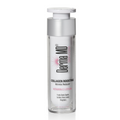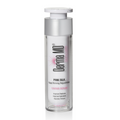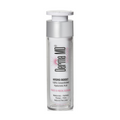Is Your Skin Thirsty?

Does your skin feel tight, dry or itchy?
If so, your skin may be dehydrated. Dehydration is a common skin condition that can occur in all skin types. Most people will experience skin dehydration at some point in their lives. If you have ever had a sun burn or wind burn you have experienced a more severe form of skin dehydration. That tight, hot, itchy feeling is your skin crying out for moisture. Dehydration doesn't have to be that severe to be damaging though. Even subtle signs of dehydration can lead to premature aging and a dull, lackluster complexion.
In assessing your own skin, it is important to know the difference between dry skin and dehydrated skin.
Dry skin generally refers to skin that is lacking oil.
Dehydrated skin refers to skin that is lacking water in the outermost layers (the stratum corneum).
Although dehydration often accompanies dry skin, dehydration can also occur in the oiliest skin types as well.
Your body is made up of 80% water, but maintaining it on the skin's surface can be difficult. A healthy, efficient epidermis should hold 13.5% water, yet if it loses just 3.5% of that then it can become dehydrated. The environment is a large contributing factor to dehydrated skin. In the winter dry, cold air outside and electric heating inside can dehydrate the surface of the skin. In the summer hot sunshine and air-conditioning can contribute to the condition.

Is your skin dehydrated?
Signs of Dehydration in the Skin
- Skin feels tight. This is especially noticeable when you smile. You may feel pulling around the nose and mouth.
- Skin feels irritated. Dehydrated skin may feel hot or itchy. Windburn is a form of dehydration.
- Skin develops superficial lines. If you lightly pinch a section of skin, dehydrated skin shows fine, dry lines and sometimes flaking.
Does drinking lots of water prevent dehydration?
It is a common myth that drinking water will help prevent skin dehydration. Although drinking plenty of water is good for your general health, it will do very little to prevent skin dehydration. Cosmetic Dermatologist, Dr Sam Bunting says, "Drinking water to rehydrate dry skin is a bit like sitting in the bath and expecting it to quench your thirst."
Does diet make a difference?
Yes. Eating a well balanced diet that includes essential nutrients like Omega 3 fatty acids can help the skin hold onto water and stay hydrated. Dr Howard Murad, who wrote the book "The Water Secret" recommends eating your water by replacing some of the water you would drink in a day with a serving of "juicy" fruits and vegetables. Dr Murad says, "‘Eating foods that are rich in structured water, especially raw fruits and vegetables, will not only help your body hold onto water longer, you’ll get the added boost of important antioxidants, fiber and other nutrients."

Eating "juicy" fruits and vegetables can help your body hold onto water longer.
Does skincare make a difference?
Absolutely! One of the best ways to hydrate the skin from the outside in is with Niacinamide, Algae Extract, Soy Bean Oil and Hyaluronic Acid, found in Derma MD's Hydrating Toner, Soy Moisturizer and Replenish Hydrating Serum.
Niacinamide: Increases moisture and reduces inflammation. Niacinamide has been shown to increase ceramide and free fatty acid levels in skin, preventing skin from losing water content, and stimulating microcirculation. It also has a growing reputation for being able to treat an uneven skin tone and to eliminate acne and the red marks it leaves behind (known as post-inflammatory hyperpigmentation). It is an excellent ingredient for those struggling with both wrinkles and breakouts.
Algae Extract: Conditions and hydrates. Both an emollient and antioxidant, Algae Extract is a good source of Omega 3 fatty acids that help prevent dryness and dehydration. Algae Extract also helps to regulate the production of sebum, the body's own natural hydration system.
Soy Extract: Increases hyaluronic acid production and helps skint to retain mositure. Studies have shown that Soy Extract can stimulate the body's own production of hyaluronic acid increasing hydration and skin firmness from the inside out. Soy Extract also has a collagen stimulating effect for more youthful looking skin.
Hyaluronic Acid: Increases hydration and firmness and improves skin texture. Hyaluronic Acid is produced naturally in the body however over time the synthesis of hyaluronic acid decreases. A baby's skin is full of hyaluronic acid which explains why babies and children rarely experience skin dehydration. Hyaluronic acid helps the skin hold onto water, plumping up cells and giving skin backs its youthful appearance. It not only hydrates the surface of the skin (the epidermis) but also penetrates deeply into the dermal layer, increasing the viscosity of the connective tissues and giving the skin the soft supple glow that it has been missing.
Used in a daily skin skincare routine, skin texture and hydration will significantly improve and your once thirsty skin will be quenched.
Glowingly yours,
Lisa P

Skincare Specialist
Derma MD Canada








